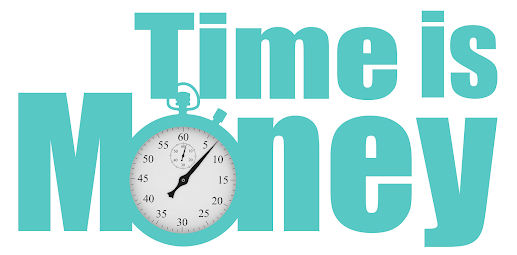You’ve learned some tricks on how to manage your time, whether you’ve learned from a boss, a friend, or on your own. Yet putting those tricks into action is a different story. You have to learn how to make a schedule for yourself, which sounds about as daunting as being your own boss. Take out your self-starter hat and get ready to learn how to manage your time all on your own with these six hacks!
1. Leave Wiggle Room Between your Time Blocks
Friends, meet buffer-time. No one should have a fully stacked calendar with no time in between for a break. Block out buffer-time on your calendar in between meetings and tasks. Your future self will thank you when your days are more productive, and the hours are less exhausting.
2. Organize Yourself
This is a big life change for some people because organization habits don’t always come easily. At first, it may feel like you are spending extra time trying to stay organized, but the payoff is worth it. Here’s a staggering statistic: On average, Americans waste about 2.5 days a year looking for misplaced objects. Don’t be part of that statistic! Find a place for your belongings and always put them back where they belong. This goes for computer files too! Create a simple filing system and save new documents to the correct location.
3. Make Use of the 80-20 Rule
Have you ever heard of the Pareto Principle? Otherwise known as the 80-20 rule, this principle says that you can get 80% of the work done in 20% of the time. Similarly, 80% of the results come from 20% of the actions. It can be applied to many things in life, so it’s a great concept to apply to your usage of time. Get in the habit of noticing what tasks get the most results. Spend more time on those actions and cut out some of the responsibilities that take up time but don’t produce the outcomes you are looking for.
4. Stop Waiting
Every once and a while, you’ll inevitably have to wait for something: at the grocery store, in the doctor’s office, in traffic. Instead of actually waiting, or deferring to your phone for entertainment, do something productive with your time. Listen to a podcast you’ve been dying to try out, read a book on an interesting topic, or write in your journal. Turn waiting time into productive time.
5. Organize Your Tasks in Blocks
Batch all your similar tasks together. For example, don’t check your email every time someone pings you. If it’s urgent, go right ahead, but otherwise, set a time block every two hours or so to plow through all your emails at one time. This keeps you focused, which is a more efficient way to work.
6. Try to Do Less
This may sound like a slacker approach, but it’s not. Believe it or not – we take on way more than we need to, meaning we take on more than is beneficial to our work. If you find yourself planning parties, chatting with your coworkers, and dabbling in another department’s workload, you may have spread yourself to thin. By doing that, you’re not helping yourself or your peers. In the end, you could wind up letting down people because you overpromise and under-deliver.


















